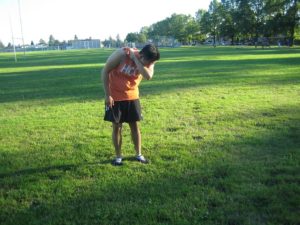Respiratory syncytial virus or RSV strikingly resembles a mild case of common cold among older children and adults. In some infants however, RSV can result to serious illness.
https://www.youtube.com/watch?v=5UvQwrm4GMQ
Those who are at high risk for a serious RSV infection include the elderly, adults with pre-existing heart or lung disease and those who have compromised or weakened immune systems.
What are the signs?
- Runny nose
- Fever
- Cough
- Mild headache
- Wheezing
- Sore throat
In most children and adults, an RSV infection only triggers cold-like symptoms, thus the treatment is the same as with common cold.
It is important to note that RSV can spread via contact and droplet transmission. Those who are exposed to the oral or nasal secretions of an infected individual can acquire the infection and spread it to others.
Management of RSV sickness
In most children and adults, an RSV infection only triggers cold-like symptoms, thus the treatment is the same as with common cold. Nevertheless, in some cases, especially infants, RSV can result to difficulty breathing and treatment involves oxygen therapy, breathing therapies such as inhaling drugs in mist form with a nebulizer or mechanical ventilation.
Since the treatment is based on the severity of the symptoms, those who were diagnosed with RSV infection who starts having trouble breathing must seek medical care.
Signs of difficulty breathing among infants
- Nasal flaring – there is wide flaring of the nostrils in and out during each breath
- Retractions – the skin surrounding the rib cage draws in deeply with every breath where the rib visibly stands out
- Excessive congestion – the infants appears to be choking on the secretions
- Difficulty feeding – actual difficulty in sucking might be a sign of difficulty breathing. The infant appears to gag and choke while feeding on a bottle or during breastfeeding or seems hungry by becoming frustrated and cries when attempting to eat

